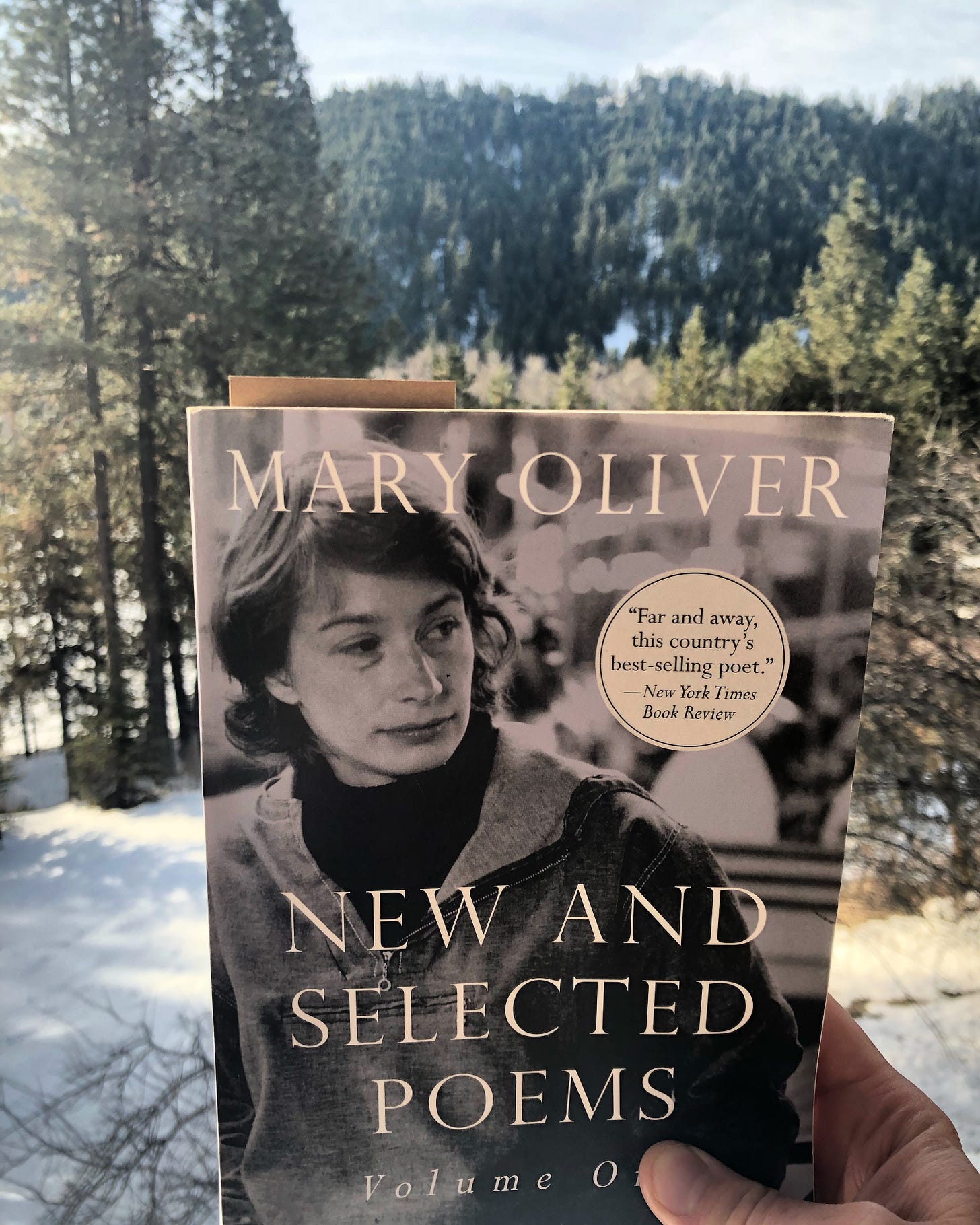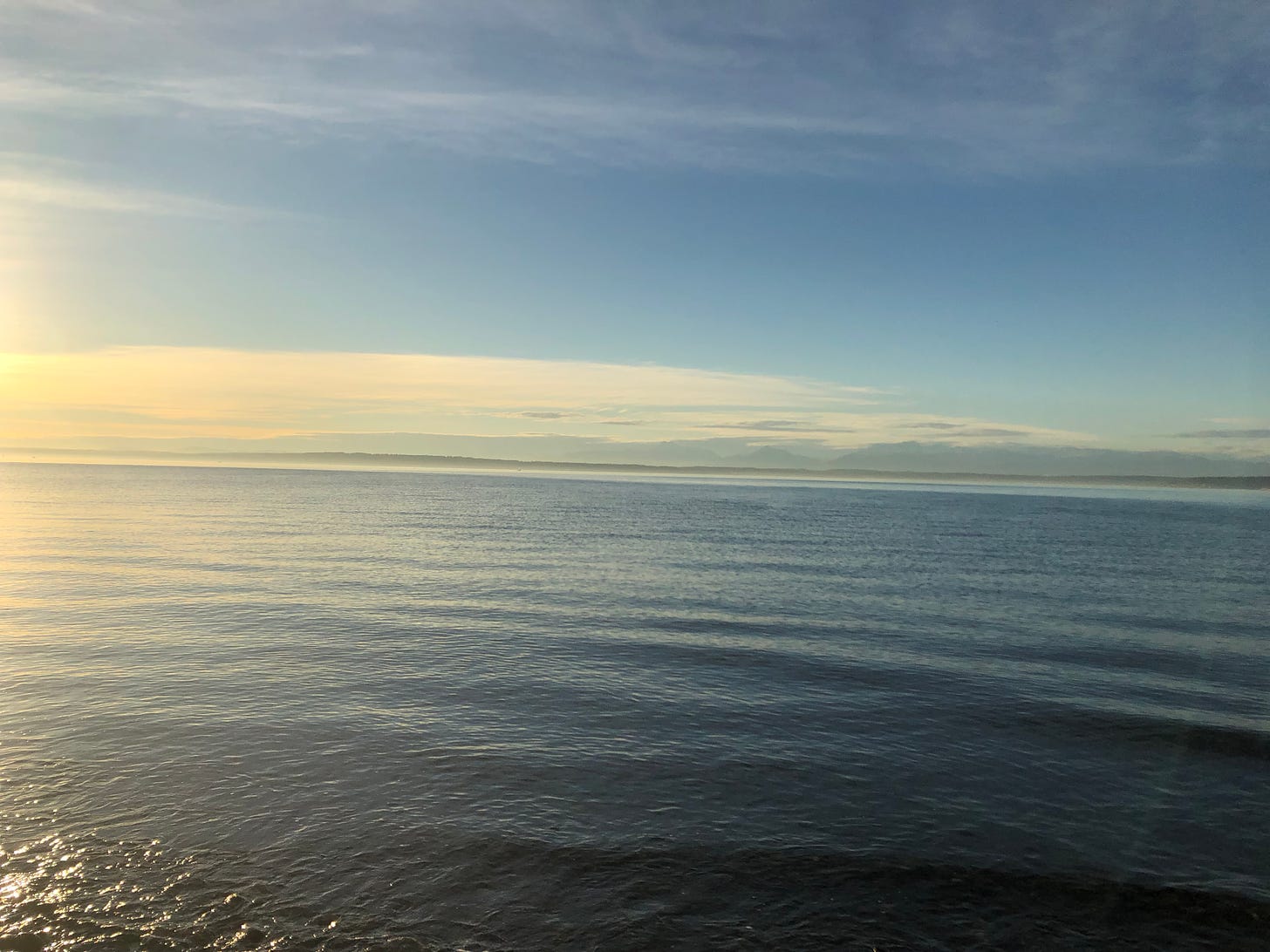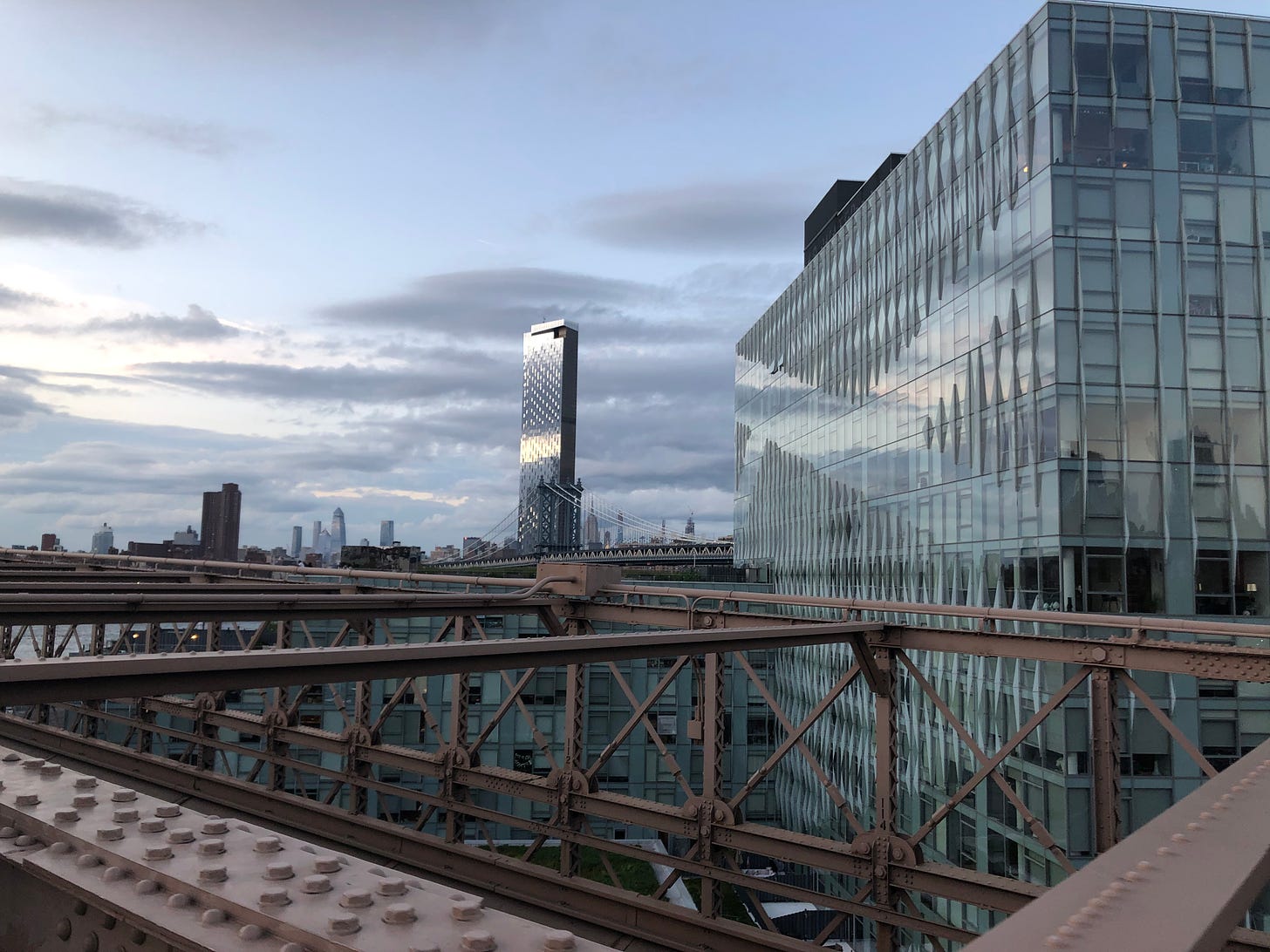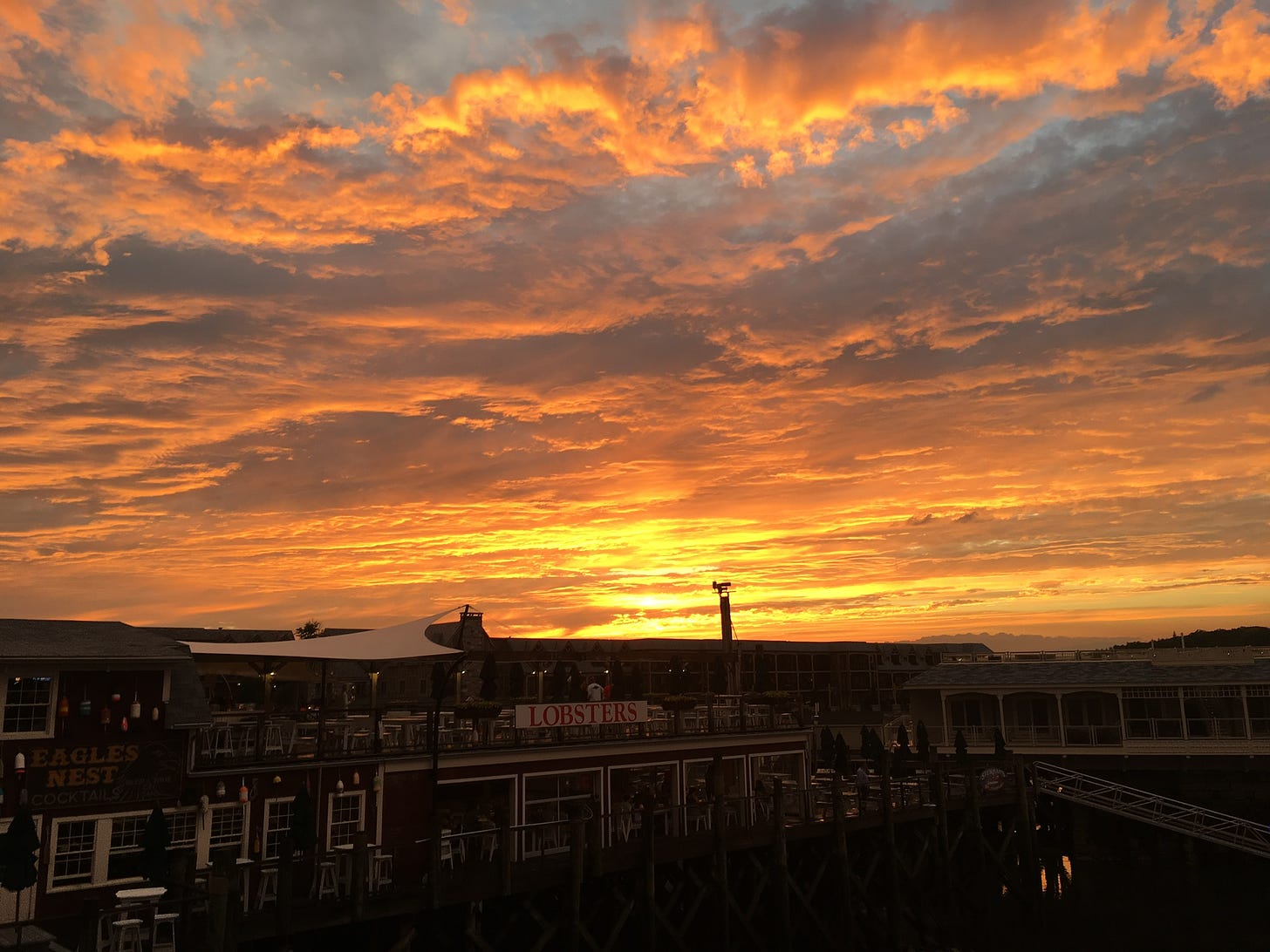Tabs Open #24: I Don't Know Exactly What A Prayer Is

Yesterday would have been Mary Oliver’s 84th birthday, the first since her passing. I got into her poetry in 2015, the same year I got into a lot of things—blogging, hiking, Moby-Dick, email newsletters—that have since become very important to me. Perhaps this is in part why I feel such an attachment to her work, because it came to me at such a transformative time. But frankly it’s just breathtakingly good, the lot of it, and it doesn’t take any special evocative memory of the time I first read it to appreciate that.
The first poem of hers I came across was “The Summer Day.” I suspect this is true of a lot of people. It’s so short and so simple—the kind of poem that tricks people into thinking they can write poems, too. I’ve heard the same said of Hemingway’s staccato prose. In trying to imitate either, the writer finds out very quickly that it’s only the experts who can write very little to say a whole lot. (If you don’t believe me take a look at how high the word count is already getting here.)
This is the text of it, in full.
Who made the world?
Who made the swan, and the black bear?
Who made the grasshopper?
This grasshopper, I mean-
the one who has flung herself out of the grass,
the one who is eating sugar out of my hand,
who is moving her jaws back and forth instead of up and down-
who is gazing around with her enormous and complicated eyes.
Now she lifts her pale forearms and thoroughly washes her face.
Now she snaps her wings open, and floats away.
I don’t know exactly what a prayer is.
I do know how to pay attention, how to fall down
into the grass, how to kneel down in the grass,
how to be idle and blessed, how to stroll through the fields,
which is what I have been doing all day.
Tell me, what else should I have done?
Doesn’t everything die at last, and too soon?
Tell me, what is it you plan to do
with your one wild and precious life?
It’s a roller coaster, getting from the admitted doubts of the early lines to the challenge of the final two, hurled like an invective at the reader. And what a challenge it is. It’s a question I didn’t know how to answer four years ago, and so I flailed at anything and everything that felt like justice or beauty. I think I’m still flailing at those things, though I think I have a better idea of what they might really look like than I did back then.

In that same year the Library of Congress’s blog published the text of a letter that a teenager named Aidan Kingwell had written to Mary Oliver. It is an intensely earnest and painful piece of writing, framed as it is by the role of Oliver’s “When Death Comes” in helping Kingwell through her worst moments of suicidal ideation and profound hopelessness. Read it, if you’re able. Either way I think everyone should see this bit:
When Death Comes, Mary – and it will – I want to face it as an equal, and shake its hand as a friend, and accept it as an eventuality. You taught me that that is the only proper way to die. With your words you taught me that life cannot be lived in the shadow of death – that life must be a thing separate from death. And you taught me that when death comes, I should embrace it, but also that I should not welcome it before its time. You taught me, Mary, that there was nothing to be feared in death so long as my life was one well-lived.
“I do not want to end up having simply visited this world”
And When Death Comes, Mary, I will tell it that you were my friend. Because you were. I will tell it that I am armed with your words, and it will bow its dark face in respect, and then, it will offer me its hand and lead me into whatever may or may not lay behind it. I will feel no fear, Mary – I no longer fear death and all its ways. I will know that I have beaten death down with your words and the inspiration that they gave me. I will know that I did not let it take me in any way but the one I wanted. And I will know that my life, no matter how twisted, corrupt, and fearful, was worth living.
Wrapped up as my internet presence is in irony, I find things so brutally sincere almost difficult to read. I’m working on that. Poetry helps. So does thinking about the legacy of a woman who lived without a trace of irony and bore her soul so neatly on the page that it quite literally saved a life or two.
Today’s a day when that sharp contrast between promoting life and promoting death is felt pretty keenly in this country. I confess myself both bored and frustrated by the deluge of social media posts that simply state “#NeverForget” or “Remember 9/11,” as though it is possible to do the former or fail to do the latter in a country that has been, I’d argue, defined by nothing else for the past 18 years. Hunter S. Thompson was particularly prescient that day, writing:
The towers are gone now, reduced to bloody rubble, along with all hopes for Peace in Our Time, in the United States or any other country. Make no mistake about it: We are At War now -- with somebody -- and we will stay At War with that mysterious Enemy for the rest of our lives.
It will be a Religious War, a sort of Christian Jihad, fueled by religious hatred and led by merciless fanatics on both sides. It will be guerilla warfare on a global scale, with no front lines and no identifiable enemy. Osama bin Laden may be a primitive "figurehead" -- or even dead, for all we know -- but whoever put those All-American jet planes loaded with All-American fuel into the Twin Towers and the Pentagon did it with chilling precision and accuracy. The second one was a dead-on bullseye. Straight into the middle of the skyscraper…
We are going to punish somebody for this attack, but just who or what will be blown to smithereens for it is hard to say. Maybe Afghanistan, maybe Pakistan or Iraq, or possibly all three at once. Who knows? Not even the Generals in what remains of the Pentagon or the New York papers calling for WAR seem to know who did it or where to look for them.
This is going to be a very expensive war, and Victory is not guaranteed -- for anyone, and certainly not for anyone as baffled as George W. Bush. All he knows is that his father started the war a long time ago, and that he, the goofy child-President, has been chosen by Fate and the global Oil industry to finish it Now. He will declare a National Security Emergency and clamp down Hard on Everybody, no matter where they live or why. If the guilty won't hold up their hands and confess, he and the Generals will ferret them out by force.
My only real quibble with Thompson, save for the shades of xenophobia and racism that are woven into other parts of his brief column, is the idea that the U.S. government ever had any interest in “finishing” the wars in the Middle East. There are students in college now who hadn’t been born yet when the towers were knocked down.

So I am not particularly concerned with whether or not 9/11 has been forgotten, as that’s a functional impossibility. I am concerned with whether or not 9/11 has taught us anything: that allowing war to be waged in your name doesn’t stop terrorists, it creates them; that war is one of the most profitable enterprises in the world, especially when it’s a crossover with oil; that almost every heinous evil in this country today—ICE and CBP, the surveillance state, the pieces of anti-Muslim legislation, the dismantling of what remained of the social welfare state—has its roots in what happened in the weeks that followed those hijackings.
But I am trying to be patient, understanding. I realize that our shared fixation with 9/11 stems, in part, from the nostalgia of feeling like the country was united in common feeling and purpose, however briefly. So much of the discourse surrounding that horrifying morning has been taken over and used so cynically by the worst people imaginable that I often have to remind myself that lots of really good people are working through their very legitimate grief, publicly and privately. That maybe I am, too.
Still, to accept that nostalgia as the sum of the truth is to whitewash all the ugly that happened to people never allowed to feel that sense of community. Balbir Singh Sodhi, for instance. Osama Yanis. Untold others. There are no easy answers to the question of how to feel about all this, regardless of where you fall on the flag-waving spectrum.
I don’t have some grand conclusion to all this. I don’t want to tell you all to just remember to be kind, because I think it’s important to be aggressively unkind to the people who are unmaking the future in pursuit of profit by weaponizing the hatred of masses who will never see a cent of it. But we can take care of each other, a bit, and stop to appreciate who and what we would fight for. For me it’s the world Mary Oliver so keenly observed and described: flawed, beautiful, messy, with an end that no one escapes.

Thanks for reading. I’ll catch you next week.
-Chuck



